SPARKS OF WORLD WAR III
AND
THE PURPOSE OF THE US BASES IN TÜRKİYE
Has the World War III Started?
Both the course of the Ukrainian war and the downfall of the country’s economy were two main reasons making Russian Leader Vladimir Putin feel nervous. The Kremlin administration threatened the world with the use of nuclear weapons. The Kremlin administration threatens the world with the use of nuclear weapons; In case of a possible 3rd World War while making an effort to trigger the countries it tries to attract and the different segments it tries to polarize; It had taken the biggest blow in the Ukraine War from China, which it thought would be behind them but did not receive the necessary support. Putin, who disappeared from time to time in his own country as part of security measures, caused anxiety by spreading rumors of “preparing for a world war step-by-step.” Whispers about the setting up of an air defense system around the Kremlin Palace in Moscow, the capital of Russia, was afloat. So much, so that Mi-8 cargo helicopters of the Russian Air Force carried many military inventories to the Kremlin Palace. According to information received from regional sources but has yet to be confirmed officially, Putin had equipped the Kremlin with air defense systems. On the other hand, the lower house of the Russian Parliament, the Duma, had agreed to apply a different tax system to Russian citizens who left the country to avoid joining the Russian Army.[1]
A Revenge Attack from Russia
The Russian Defense Ministry said that a revenge attack was carried out in eastern Ukraine and that more than 600 Ukrainian soldiers were killed in the attack. On the other hand, Russia announced that despite the shelling of Ukraine, the Russian Army would continue to comply with the ceasefire announced due to the Orthodox Christmas. Ukrainian President Volodimir Zelensky accused Russia of staging an attack on Ukraine during the 36-hour ceasefire announced by the Orthodox on the occasion of the Christmas holiday. Russia’s statement that more than 600 Ukrainian soldiers were killed in a missile attack on the Ukrainian city of Kramatorsk was denied by Ukraine. Mayor of Kramatorsk, Oleksandr Honcharenko, stated on his social media account that Russian attacks targeted schools and there were no casualties in these attacks, “two schools, eight apartments and one parking lot were damaged during the Russian missile strikes during the night. There was no loss of life,” he said.
The Chief of the Russian General Staff had been Appointed to the Head of the Troops in Ukraine.
Valeri Gerasimov, the Chief of the Russian General Staff, had been appointed to the head of the Joint Military Forces responsible for the “special military operation” in Ukraine. In a written statement made by the Russian Defense Ministry, it was emphasized that changes were made at the command level of the Russian Army for Ukraine. It was announced in a statement that Valeri Gerasimov had been appointed head of the Joint Military Forces, and Sergey Surovikin, the previous commander of the Joint Military Forces and Commander of the Aerospace Forces, would serve as Gerasimov’s deputy.
In the statement, where the level of the command responsible for the special military operation was raised due to the expansion of the tasks carried out within the scope of the operation, it was expressed that “The changes were also related to the closer organization of interaction between units of the Russian army, an increase in the quality of all kinds of support and the effectiveness of troop management.”[2]
The Claim: “Russia’s Headquarters has been Hit! 400 Russian Soldiers Killed.”
According to a statement made by the Russian Defense Ministry, 63 Russian soldiers were killed in a missile attack by the Ukrainian Army on a Military Base in Donetsk. In a statement made by the Ukrainian Army, the missile attack on a building where Russian soldiers were stationed in Makiivka was confirmed. The statement also emphasized that 400 Russian soldiers were killed and 300 soldiers were injured in this missile attack. On the other hand, the Russian Army carried out an attack on the capital Kyiv with unmanned aerial vehicles at night; one person was injured.[3]
From France, More Messages of Support for Ukraine
French President Emmanuel Macron promised more support to Ukraine after Russia carried out numerous airstrikes on the Ukrainian capital Kyiv and some other cities and held a phone call with his Ukrainian counterpart Volodimir Zelensky after the Russian attacks. In a written statement about the meeting, Macron announced that “France has promised to increase its support to Ukraine in response to the needs identified by Kyiv, including military equipment.” Macron underlined his concern about the attacks and reminded that he was in close contact with the G7 countries and their European allies.[4]
Russia Had Warned Türkiye to Stop Supplying Weapons to Ukraine!
Russian Human Rights Ombudsman Tatyana Moskalkova announced that she had asked Parliament Speaker Mustafa Şentop to stop the supply of weapons to Ukraine to “prevent further escalation of the situation.” Moskalkova said that she made the request during a meeting with Parliament Speaker Şentop, Ukrainian Ombudsman Dmytro Lubinets, and Turkish Ombudsman Şeref Malkoç. The trilateral meeting of the ombudsmen of Türkiye, Russia, and Ukraine was held in Ankara.[5]
Why Did the USA Claim Türkiye’s Move!?
The U.S. State Department; reported that they appreciated the constructive role played by Türkiye to end the Russia-Ukraine War and that Türkiye used its relations with the two countries for peace, but this made all minds get confused. These confessions revealed that Türkiye had been provoked by the United States to get into trouble. At a daily press conference, responding to questions about Türkiye’s efforts in this regard after Russia announced a ceasefire in Ukraine, the U.S. official Price spoke out his assessments: “We greatly appreciate the constructive role that Türkiye has played in the effort to end this barbaric war. We appreciate Türkiye’s resolute commitment to the territorial integrity of Ukraine and its efforts to improve the dialogue between Ukraine and Russia.” However, they had provoked the Ukrainian-Russian War themselves.[6]
It was also disgusting that the Pope praised Türkiye’s mediation efforts!
Pope Francis had met with Ambassadors working at the Vatican. The Pope, who met with Türkiye’s Ambassador to the Vatican, Lütfullah Göktaş, was confused by Türkiye’s praise of the mediation decrees between Russia and Ukraine.
Lütfullah Göktaş made the statement on Twitter. He said that the Pope was receiving Ambassadors at the Vatican on the occasion of the New Year. During the handshake with the Pope, Göktaş himself noted, “Türkiye’s mediation efforts between Russia and Ukraine are also appreciated in the Vatican.”[7] However, although the Papacy had always taken a stand against Türkiye on every issue throughout history; for example, points on Cyprus and the Aegean region or about the PKK attacks, of course, an ulterior motive should be sought behind its flattering Türkiye now.
After the “Security warning” the United States made to Türkiye, the decision of Western countries such as the United Kingdom, Germany, France, Italy, the Netherlands, Sweden, Belgium, and Switzerland to temporarily close their consulates in Istanbul was an attempt to blockade and an indirect message of recognizing our country as an “enemy” in the upcoming world war. Of course, this was a psychological war and was considered a threat to expel Türkiye from NATO. Yes, these were true and were normal from the point of view of the Western Crusaders. However, there was one more fact that was hidden and not expressed in particular: Western countries that closed consulates were indirectly supporting Mr. Recep T. Erdoğan at the same time. Because there was an issue that could not be foreseen, that issue is about our undecisive voters, who turn to seek around despairing of the AKP government who seemingly occasionally stands up to the West – but in reality, kneels before the E.U. – would shift back to Erdoğan in the face of these arrogant Western attitudes.
Well, against whom would the U.S. military bases in Türkiye be used in a 3rd World War?
Within the scope of the expansionist policy of the United States, the effort to establish military bases and facilities outside its territory, which began after World War I, has gradually increased since World War II. These military bases and facilities, which are the most important representatives of the U.S. hegemony, have been reshaped by the role of the United States in the new world order established after the Second World War. During the Cold War, the United States relocated its military bases and facilities in order to prevent the spread of the USSR (containment policy) and to meet the coming great war as far away from its territory as possible. As a result of the threatening attitude of the USSR after the Second World War, Türkiye shifted to a pro-Western and, therefore, pro-US foreign policy. On February 23, 1945, a new process started with the agreement between Türkiye and the United States in this context. The second article of the agreement, “The government of the Republic of Türkiye will provide the United States with the substances, services, easiness or information that it is in a position to supply and may allow” the importance of Türkiye for U.S. security was emphasized. Thus, Türkiye opened its highways, ports, airports, railways, and stations to the use of the United States. In addition, U.S. civilian and military advisers were sent to Türkiye.
Several agreements were made between Türkiye and the United States during the Cold War. These agreements made by the United States for economic and defense purposes began to shape the relations between the two countries. On August 29, 1949, the USSR successfully deconflicted a nuclear bomb in Semipalatinsk, Kazakhstan. Thus, the USSR, in addition to the USA, had become the world’s second nuclear power. This situation increased the importance of military bases and facilities for the U.S. to follow the territory of the USSR. Upon Türkiye’s accession to NATO (February 18, 1952), NATO bases and facilities began to be established on the territory of the country. After Türkiye joined NATO, bilateral agreements were made between the United States and Türkiye for the purpose of establishing bases and facilities in accordance with the third article of the NATO Treaty. After June 23, 1954, the “Military Facilities Agreement” was signed between the United States and Türkiye, and military bases and facilities were established under the administration of the United States in Türkiye. Considering these military bases and facilities, the number of which constantly changed during the Cold War, the variability within the scope of the strategic plans of the United States stood out. The CIA drew attention to the bases and facilities in Türkiye in a document prepared on November 19, 1980. In the record, it was emphasized that the United States had 40 military bases and facilities in Türkiye. Of these, 26 were used as military bases. It was explained that Adana-Incirlik Air Base and Izmir-Çiğli Air Base were the most important of these bases. Due to its strategic location, emphasis was placed on the critical importance of the Diyarbakır facility in pursuing the USSR. After the Islamic Revolution in Iran, the bases and facilities in Türkiye gained more importance after the closure of the U.S. facilities in Iran.
Some agreements were made between Türkiye and the United States regarding the establishment and activities of these bases and facilities, some of which were verbally approved. For this reason, there has been management and authority confusion at the base and facilities for many years. The U.S. bases and facilities were brought up and discussed with the Turkish public only after the Cyprus Issue in 1964. In the face of the developments in Cyprus, the United States had opposed Türkiye’s decision to intervene on the island. President of the United States, Lyndon B. Johnson, caused the diplomatic crisis by writing a letter referred to as the Johnson Letter, which had a significantly negative impact on relations between the two countries. The Johnson Letter led to questioning of ties with the United States in Turkish public opinion. Sensitive groups in Türkiye had defended this as election propaganda by stating that the U.S. bases and facilities in Türkiye were contrary to sovereign rights. The existence of bases and facilities, which had found a tiny place in public opinion until that day and whose existence was known almost only in the areas where they were established, had been discussed by a wide section.
The deconfliction of the agreement between the two countries lasted until 1969. With Turkish-American Joint Defense and Cooperation Agreement, the agreements signed between the two countries until that day were gathered under one title, and the situation of the bases and facilities was reviewed decently. Türkiye’s rights over military bases and facilities were increased. The agreement to reduce reactions from the public and to correct the complexity of the base and facilities was also the beginning of a new era. This period ended with the Cyprus Peace Operation of 1974, which was achieved as a result of the support of the CHP Coalition Government and with the very special efforts and courage of Prof Dr. Necmettin Erbakan. The United States reacted strongly against the Cyprus Peace Operation carried out by Türkiye in the face of the developments in Cyprus and against the lifting of the poppy planting ban imposed after the Memorandum of March 12, 1971, and decided to start embargo on Türkiye in 1975. The embargo had deeply shaken the country’s economy, which was already in a difficult situation. As a result of the fact that the United States did not lift the embargo despite all efforts, Türkiye confiscated all U.S. military bases and facilities located on its territory by the decision of the Council of Ministers on July 26, 1975. This move also brought rapprochement with the USSR to the agenda. Relations between the two countries, which were the scene of many breaks during the Cold War, started a new process with the steps taken. Until that day, the USSR, which had always stated its discomfort with the existence of U.S. bases and facilities, announced its satisfaction with Türkiye’s seizure of bases and facilities.
After the U.S. lifted the embargo in 1978, it started operating again at its bases and facilities in Türkiye. After the Islamic Revolution in Iran, the closure of the U.S. facilities on Iranian land and the USSR’s invasion of Afghanistan (December 1979) increased U.S. security concerns in the region. For this reason, a Defense and Economic Cooperation Agreement was signed between Türkiye and the United States on March 29, 1980. The agreement included where the United States would establish bases and facilities on the territory of Türkiye, its management, and activities. NATO and U.S. bases and facilities established in Türkiye during the Cold War years occupied an extremely important place in relations between Türkiye and the United States. In return, it caused tension in relations between the USSR and the United States and relations between Türkiye and the USSR. In the study, the questions of where the U.S. bases and facilities were established in the country, what activities were carried out at the bases and facilities, how the bases and facilities affected the public opinion of the country, what role they played in Türkiye-US and Türkiye-USSR relations were answered by considering the first-hand sources and research works that would illuminate the period, especially the Archive of the U.S. State Department, the U.S. Central Intelligence Agency.
The Goals of the United States to Establish Bases and Facilities!
While the United States had about a hundred bases when it joined the Second World War, by the time the war ended, it had prepared more than two thousand bases and more than thirty thousand military facilities scattered in about a hundred countries from the Atlantic to the Pacific. By the time the war ended, the United States had deployed 8.3 million infantry, 3.3 million marines, and 500 thousand marines overseas. U.S. President Harry S. Turman, speaking at the Potsdam Conference on August 7, 1945, emphasized the position of the bases in the new order as follows:
“The United States does not aim to gain interest as a result of this war. On the contrary, we have to keep the military bases necessary to protect our interests and world peace. We will establish bases that our military experts consider vital for our defense. We will do this with arrangements under the United Nations Convention.”
Experts have written that the United States has 585 bases in different parts of the world, noting that two-thirds of the U.S. Armed Forces are located outside its territory.
Establishment of U.S. Bases and Facilities in Türkiye
In order to meet the great war that may break out with the USSR during the Cold War, the United States established many bases and facilities in various parts of the world as far away from its territory as possible. These bases and facilities were concentrated in places close to the territory of the USSR within the scope of the containment policy. In this context, Türkiye, a neighbor to the USSR, the Middle East, and the Balkans, is located at a very strategic point with the Istanbul and Dardanelles Straits, which has come to the fore. After the Second World War, Türkiye tried to find support from the United States in the face of USSR threats. The United States evaluated Türkiye’s strategic position and responded positively to this request. The strategic importance of Türkiye has been emphasized many times in CIA archive documents. As an example, the CIA’s “Türkiye” booklet, dated December 22, 1948, focuses on the importance of Türkiye in terms of U.S. security. Again, the CIA reminded Türkiye of the importance of strengthening the U.S. presence in the Mediterranean against the USSR in its report dated January 8, 1951. For this reason, it was emphasized that the assistance to Türkiye would strengthen the U.S. presence in the country.
Incirlik Air Base, which comes to mind first when called a NATO base in Türkiye, has been at the center of discussions on this issue for many years. Years before the Incirlik Air Base was established, Adana was the scene of a crucial intelligence struggle during the Second World War. The U.S. Intelligence Agency, The Office of Strategic Services-OSS (1942-1945), established a headquarters in Adana in 1943. The U.S. Ambassador’s summer house in Adana had become an intelligence center. This move by the United States was part of the intelligence struggle in the region. In light of the information provided by the OSS, it was clear that German intelligence had been conducting intensive activities in the region. This situation brought Adana’s strategic position to the fore.
The successful conclusion of the USSR’s nuclear bomb test on August 29, 1949, ended the U.S. monopoly as a nuclear power. In addition, Yugoslavia’s separation from the USSR and establishment of a Cominform, and developments in the Middle East accelerated the U.S. plan to establish military bases and facilities in Türkiye. On May 14, 1950, Parliamentary General Election, the Democratic Party used NATO membership in its election propaganda and offered NATO membership as a prerequisite for the U.S. request to establish bases and facilities. Türkiye was made a member of NATO on February 18, 1952. Türkiye, after NATO membership, agreed to accept NATO’s establishment of military bases and facilities and personnel on the country’s territory within the scope of the NATO Status of Forces Convention, which was signed on August 25, 1952. June 23, 1954, within the scope of the NATO Agreement, signed between Türkiye and the United States with the Agreement on Military Facilities, the legal basis for the establishment of bases and facilities of the United States on the territory of the country and military activities was prepared.
Management Rules of U.S. Bases and Facilities!
The political and military roles of the U.S. bases and facilities in Türkiye have come to the fore. In addition to these roles, there have been personnel problems due to the uncertainty arising from the agreements. Regarding the crimes committed by personnel serving in Türkiye, according to the NATO Convention on the Status of Forces, in the event of the commission of a crime existing in the laws of the sending and receiving countries, it is unclear how to prosecute an act that does not constitute a crime under the laws of one party. In addition, if the crime is committed while on official duty, leaving the trial to the sending country, the United States, causes an important legal gap. Because there was no unit to detect the expression “during official duty.” After that, by the law passed on July 16, 1956, this approval was left to the highest-ranking commander of the United States in Türkiye. This situation has been abused and used against Türkiye many times.
On May 11, 1956, Sergeant Frank R. Boston hit five children on the way from Eskişehir to Ankara and caused the death of three of them. Although Sergeant Boston was detained, the crime was allegedly committed while on official duty, and although the United States sentenced him after the trial, his sentence was not enforced due to lack of evidence. In another example, the same coverage was given to the accident in Ankara on November 5, 1959, in which a U.S. Lieutenant Colonel hit eleven of Turkish soldiers, causing the death of one. Another abuse was experienced in duty-free shopping. It was determined that some personnel abused the duty-free shopping rights of U.S. personnel. Robert M. Fresco mentioned this situation in his report found in the CIA archives. Robert M. Fresco drew attention to the fact that a U.S. staff member living in Ankara could buy products such as cigarettes and alcohol cheaply, and a professor next door could not buy them due to customs duties. He stated that some personnel abused this situation through the trade of products.
The Inconsistency of Süleyman Demirel!
Discussions about the use of bases and facilities as if they were U.S. land by ignoring the sovereignty of the country were widely mentioned in public opinion. Although the bases and facilities caused public controversy within the scope of these discussions, Prime Minister at that time Süleyman Demirel denied the existence of the bases and argued that they were facilities. In contrast to the explanation given by Prime Minister Süleyman Demirel, “There is no U.S. base in Türkiye, there is a facility,” sensitive intellectuals published a list of U.S. bases and facilities in Türkiye on September 12, 1967, with the title “We are Explaining the American Bases in Türkiye.” This news was prepared in light of the information given in the USAF INSTALLATIONS DIRECTORY (Worldwide) of the American Air Force’s AFM 87-3 issue and the USAF INSTALLATIONS DIRECTORY (Worldwide) of November 25, 1963.
Since the agreements signed between Türkiye and the United States were sometimes made in secret and sometimes verbally, the minutes of the agreements were not kept decently by the two countries. Prime Minister Süleyman Demirel made this confusion public on February 7, 1970. Süleyman Demirel emphasized that a total of 91 agreements were signed between Türkiye and the United States on various dates since 1945. Only 16 of these agreements were approved by law. Twelve were map agreements, six were repealed; 4 were scientific agreements; 26 were aid agreements, 14 were the agreement made due to decisions taken within the NATO alliance, and 13 were the 1954 military facilities agreements. In his speech, Süleyman Demirel stated that 15 agreements had been signed with the United States for common defense since October 27, 1965, when they came to power. As a result of these agreements, Izmir (Çiğli) Airport and Trabzon and Samsun Radar Facilities were agreed to be transferred to the Turkish Armed Forces.
Unfortunately, there was confusion about the existence and management of U.S. bases and facilities in Türkiye. Which base and facility were established by which agreement was kept a secret? Some of these bases and facilities were established by verbal agreements. Prime Minister Süleyman Demirel tried to eliminate the base and facilities from being a subject of discussion every time. This situation was brought up by Haluk Bayülken, Secretary General of the Ministry of Foreign Affairs, who met with the U.S. Ambassador to Ankara in March 1966. The United States had opposed demands for changes to treaties granting broad rights. However, on April 7, 1966, a note about the changes was transmitted to Türkiye. The United States had to accept the proposals for amendments in its reply dated April 18, 1966. Thus, the process of the “Defense and Economic Cooperation Agreement” (DECA) dated July 3, 1969, had begun.
On July 3, 1969, a Defense and Economic Cooperation Agreement between Türkiye and the United States was signed. After the confusion in the previous agreements and Türkiye’s relations with the United States became questionable, the decrees signed between the two countries were revised and collected in a single text. On January 23-25, 1970, the National Assembly, due to the secrecy of the agreement, was discussed in a closed session held in the Senate on January 27-28, 1970, the public was informed only about the basic principles, and the content was not disclosed. Prime Minister Süleyman Demirel stated in the following days that the agreement was prepared on the principle of mutual sovereignty and equality and that no action would be taken without Türkiye’s approval regarding bases and facilities; joint use was taken as a basis. The text of the agreement was published by Hürriyet newspaper on March 16-17, 1975, only after the arms embargo imposed by the United States on Türkiye.
In addition, the status of the base and facilities was explained in the fifth article as follows:
“Article-5: For this agreement, all real estates, including land property, built or established by or on behalf of the United States on land allocated by the T.R. Government, from the date of construction or establishment will be the property of the T.R. government.”
Confiscation of Bases and Facilities
The tensest period in relations between the United States and Türkiye during the Cold War years was experienced during the embargo imposed by the United States on Türkiye. On March 12, 1971, in response to the decision to lift the poppy planting ban, which began to be implemented after the memorandum, the United States, economic assistance was cut off. Immediately after this decision, the Cyprus Peace Operation carried out by the Erbakan-Ecevit Government to prevent attacks against the Turkish population on the island after the coup in Cyprus had mobilized the Greek lobby in the United States. The lifting of the poppy planting ban, the Cyprus Peace Operation, and the Greek lobby’s activities strengthened the country’s anti-Türkiye sentiment, so the embargo decision was taken. The embargo decision taken against the Cyprus Peacekeeping Operation’s bill amounting to approximately 1 billion dollars brought the economic bottleneck in the country for a long time to a dead end.
After failing to get any results despite all efforts to lift the embargo, Türkiye started to change its attitude towards the United States. To reduce the harsh criticism directed at domestic policy, the government stressed in a note sent to the U.S. Embassy that “if the embargo is not lifted within 30 days, the base and facilities will be confiscated.” Defense and Economic Cooperation Agreement (DECA) dated July 3, 1969, with the United States (by the Decision of the Council of Ministers) lost its legal validity, stating that the USA did not take the required steps against the note, Türkiye announced that it seized all bases and facilities except Incirlik Air Base as of July 26, 1975. This development was faced with a reaction from the United States. Although U.S. President Gerald Ford called on the House of Representatives to lift the embargo decision, he could not achieve success. Although the CIA stated that Türkiye’s seizure of military facilities would not cause a change in U.S. defense and that Türkiye’s importance and contribution in this direction would continue, deep concern was expressed by the United States. In the meeting between NATO envoy Ercüment Yavuzalp and U.S. Ambassador William B. Macomber, it was stated that he “called for the U.S. soldiers to be treated as friendly and allied forces during the seizure of the facilities.”
With the special pressure of Erbakan and Türkeş, who were government partners at that time, the Nationalist Front Government was determined to continue its reactions without a significant break in relations with the United States as a requirement of Demirel’s policy since the beginning. Although the CIA predicted that Süleyman Demirel would not take a step that would damage U.S. relations, it was emphasized that the failure to lift the embargo had become an important pressure in domestic politics, despite the promise of ending the embargo by U.S. officials, and therefore it was necessary to get rid of Erbakan. He warned that Türkiye might enter into relations with other countries, including the USSR, to meet the need for military equipment. By the decision of the Council of Ministers dated July 26, 1975, Türkiye seized the U.S. bases and facilities as of July 26, 1975. While some of the P.X. stores located in the facilities had been closed, only NATO soldiers were allowed to use the part within NATO. In addition, it was decided that fees be charged at airports where the United States uses C-130 aircraft.
The United States searched for a new solution in the face of Türkiye’s move and tried to provide the requested assistance through the Federal Republic of Germany to reduce the reaction in Türkiye during this process, but the Federal Republic of Germany did not agree to this. The most important reason for this U.S. effort was to ensure the continuation of activities at the base and facilities. Türkiye’s decision to confiscate U.S. bases and facilities caused deep stress and concern in the U.S. administration. The report dated August 20, 1975, prepared in the face of developments, emphasized how important Türkiye was in terms of U.S. security. In this context, Türkiye’s seizure of bases and facilities was mentioned in the agenda that it harmed the activities carried out by the United States. For this reason, recommendations were presented in the last part of the report. These proposals were to sign a new Defense Cooperation Agreement with Türkiye, provide the military assistance Türkiye needed through NATO, continue negotiations in Congress, and reduce bases and facilities in Türkiye. After that, a Defense and Cooperation Agreement was signed between Türkiye and the United States on March 26, 1976. In the agreement, the situation of the bases and facilities was discussed again, and Türkiye’s powers over the bases and facilities were increased. With this agreement, the embargo was aimed to soften. However, Greece’s attitude towards the agreement mobilized the Greek lobby in the United States, and the agreement was not accepted by the U.S. Congress. In addition, the agreement was not approved by the Parliament because the assistance provided in the agreement was insufficient.
The Dangerous Efforts Carried Out at the U.S. Bases and Facilities in Türkiye!
Technological developments have also shaped intelligence techniques. The Cold War led to a revolution in terms of intelligence activities. Intelligence organizations, which had difficulties in espionage activities in developing weapons technology, had resorted to new ways. The United States realized that the techniques used until that day in intelligence activities would not be sufficient in the new war, and they made new attempts to do so. Since the USSR had a wide geography, tracking it with existing intelligence methods had become extremely difficult. For this reason, taking a revolutionary step in intelligence activities has moved the oldest intelligence method to an effective position with the help of technology.
The USSR’s launch of the first satellite into space in October 1957 was an extremely important step militarily and strategically. Thus, the United States had lost the air superiority it held with the SAC-Strategic Air Command established after the Korean War. After the USSR took such an important step, the United States increased its intelligence activities and put forward extremely important projects such as the U-2. It is known that U-2 spy planes took off from the United Kingdom, Germany, Japan, Norway, and Türkiye. A report submitted to the National Security Council by U.S. Air Force Commander Stuart Symington in December 1948 emphasized Türkiye as the only country to resist the USSR invasion. In addition, he had identified Türkiye as the base of medium-range bombers.
After the Second World War, many bilateral agreements were made between the United States and Türkiye. As a result of these agreements, the United States established many Military, logistics, and intelligence centers on the territory of Türkiye. For this reason, they established air bases in Adana, Diyarbakır, and Bandırma. Incirlik Air Base, located in Adana, had come to the forefront in terms of its facilities. From here, it was originally intended to carry out activities within the scope of the Genetrix project. The Genetrix project covered the monitoring of the desired regions by placing high-resolution cameras on weather-tracking balloons. On January 10, 1956, the United States deployed balloons and personnel to Adana to carry out the Genetrix project in Türkiye. The desired result could not be achieved due to the difficulty of controlling the balloons and adverse weather conditions. In addition, the reaction of the USSR intensified. Deputy Foreign Minister of the USSR Andrei Gromiko, in a note to the U.S. Ambassador to Moscow, accused the U.S. of violating the territory of the USSR and asked for an end to this situation. After that, the United States decided to stop the project. Thus, the U.S. personnel stationed in Adana within the scope of the Genetrix project left in March 1956.
The personnel stationed at the U.S. bases and facilities established remarkable relationships with the people of the region and supported anarchy and separatism. As stated above, in addition to the public order incidents, allegations were made that the staff took the children in exchange for money and adopted them. According to the news published by Murat Karaman in Sabah newspaper on January 9, 2018, the personnel working at Incirlik Air Base adopted children from some families in the region in exchange for money. According to the news, the children who were bought for money from some families in Adana were taken to their country by U.S. personnel.
The bases and facilities established by the United States on the territory of Türkiye have been protecting their secrecy for many years. In this process, because of the broad rights obtained through the agreements between Türkiye and the United States, these bases and facilities could not be controlled, and not enough information could be obtained about their activities. The United States has verbally obtained permits many times for the activities it conducts from bases and facilities in Türkiye. The United States has benefited from the bases and facilities, which are an important element in the relations between the two countries, as it wishes. So much so that the U.S. personnel on duty were subjected to the laws of the United States, not the laws of the Republic of Türkiye; this situation has also intensified the abuses along with it.
After the Islamic Revolution in Iran, the bases and facilities in Türkiye gained more importance after the closure of the U.S. facilities in Iran. With the removal of the embargo in 1978, the United States began to use the base and facilities again. In this context, the situation of the bases and facilities was discussed in detail in the Defense, and Economic Cooperation Agreement signed between the two countries on March 29, 1980. In the agreement, elements such as which bases and facilities the United States would use in Türkiye and how its administration would be carried out have been determined.
In the archival documents of the U.S. State Department and the U.S. Central Intelligence Agency, it is understood how much importance the United States attaches to bases and facilities in Türkiye. In addition to activities such as listening to and monitoring the USSR and Middle Eastern countries, the United States has used the base and facilities as an important logistics center for the intervention. The United States has also monitored military mobility in Türkiye through bases and facilities. For this reason, bases and facilities in Türkiye play an important role in the security of the United States rather than the security of the country. The presence of bases and facilities has sometimes moved Türkiye to the target position. This often creates problems between the U.S. and NATO centers, Türkiye-USSR, and Türkiye-Middle Eastern countries.[8]
As a result:
Emphasizing that they are the continuation of them, Mr. Recep T. Erdogan, with a complete Adnan Menderes capitulation and Suleyman Demirel tactic, although he occasionally makes vain moves to get the public’s mood against the United States and Israel, is taking an attitude that protects the interests of America and Israel intellectually and virtually. In a process where it is being talked about that the World War has started, being freed of this AKP government is a very important stage in terms of our country’s security and future of our nation. Now our nation needs to act not with feelings but with facts and truths, and we will hopefully succeed in this.
[1] Milli Gazete – December 26, 2022
[2] Haber7 – January 12, 2023
[3] Haber7 – January 12, 2023
[4] TRT – October 11, 2022
[5] cumhuriyet.com.tr – January 11, 2023
[6] Haber7 – January 6, 2023
[7] CNN Turk – January 10, 2023
[8] Dergi Park – 19.02.2020 – Sinan Kiyanç



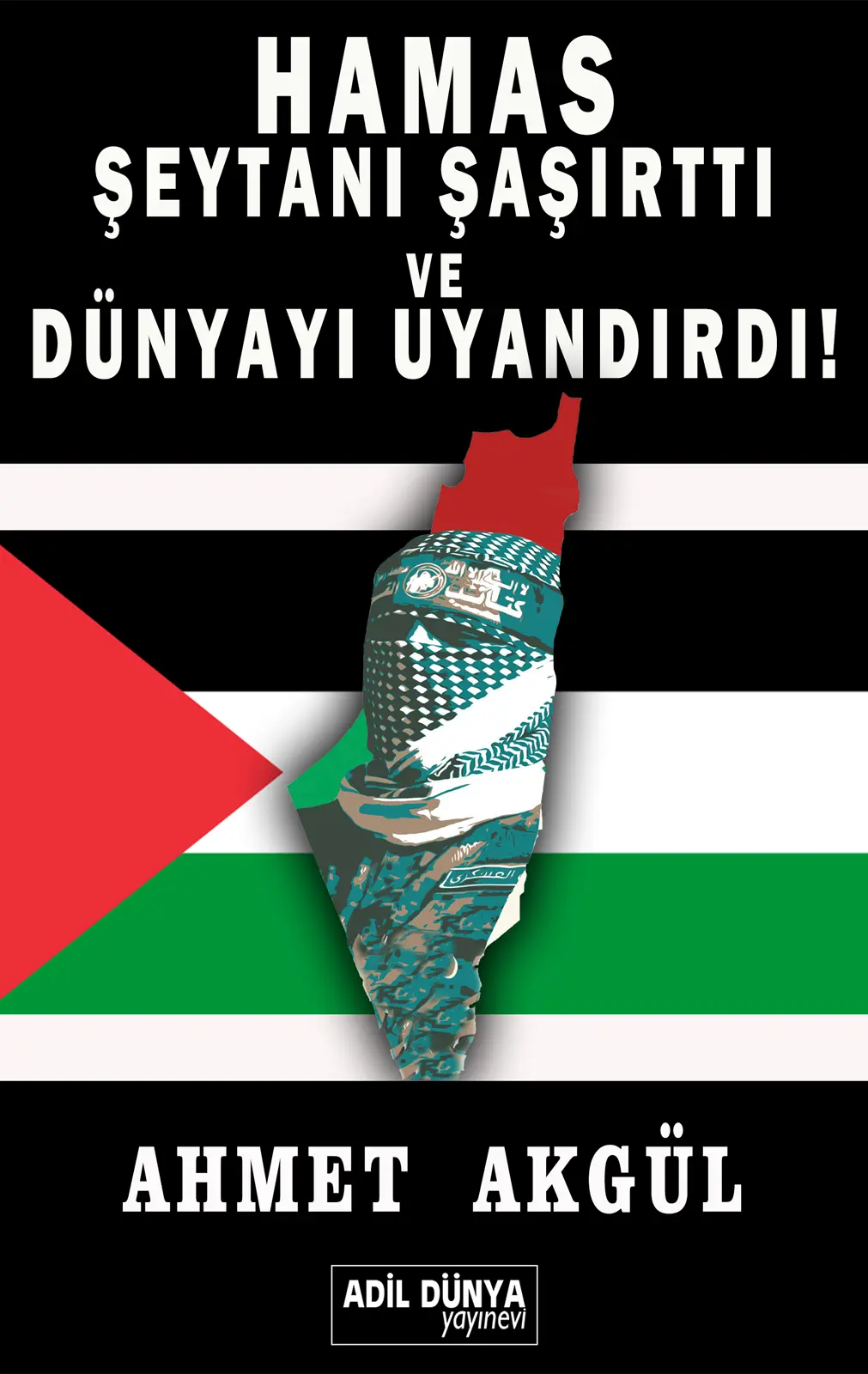



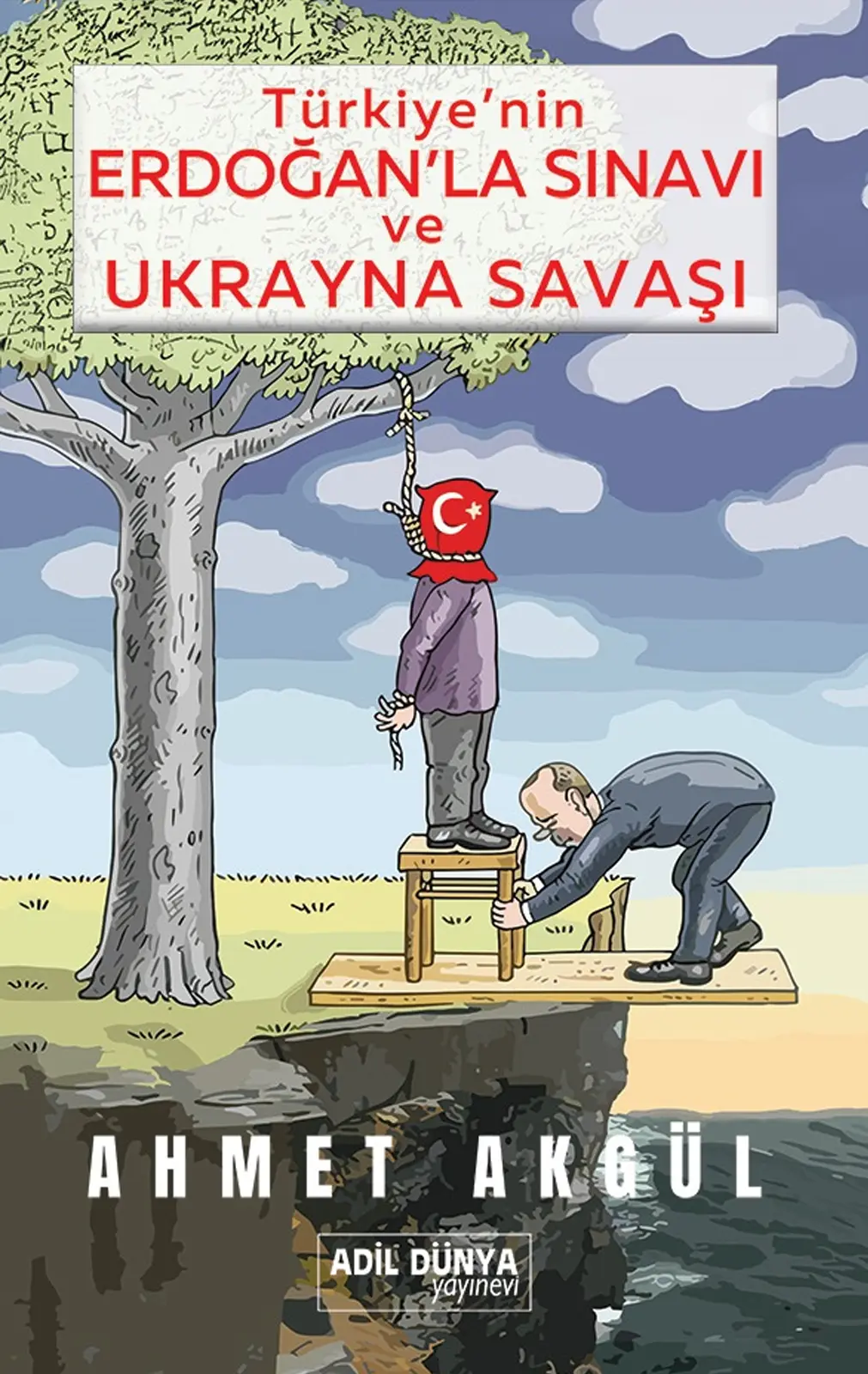
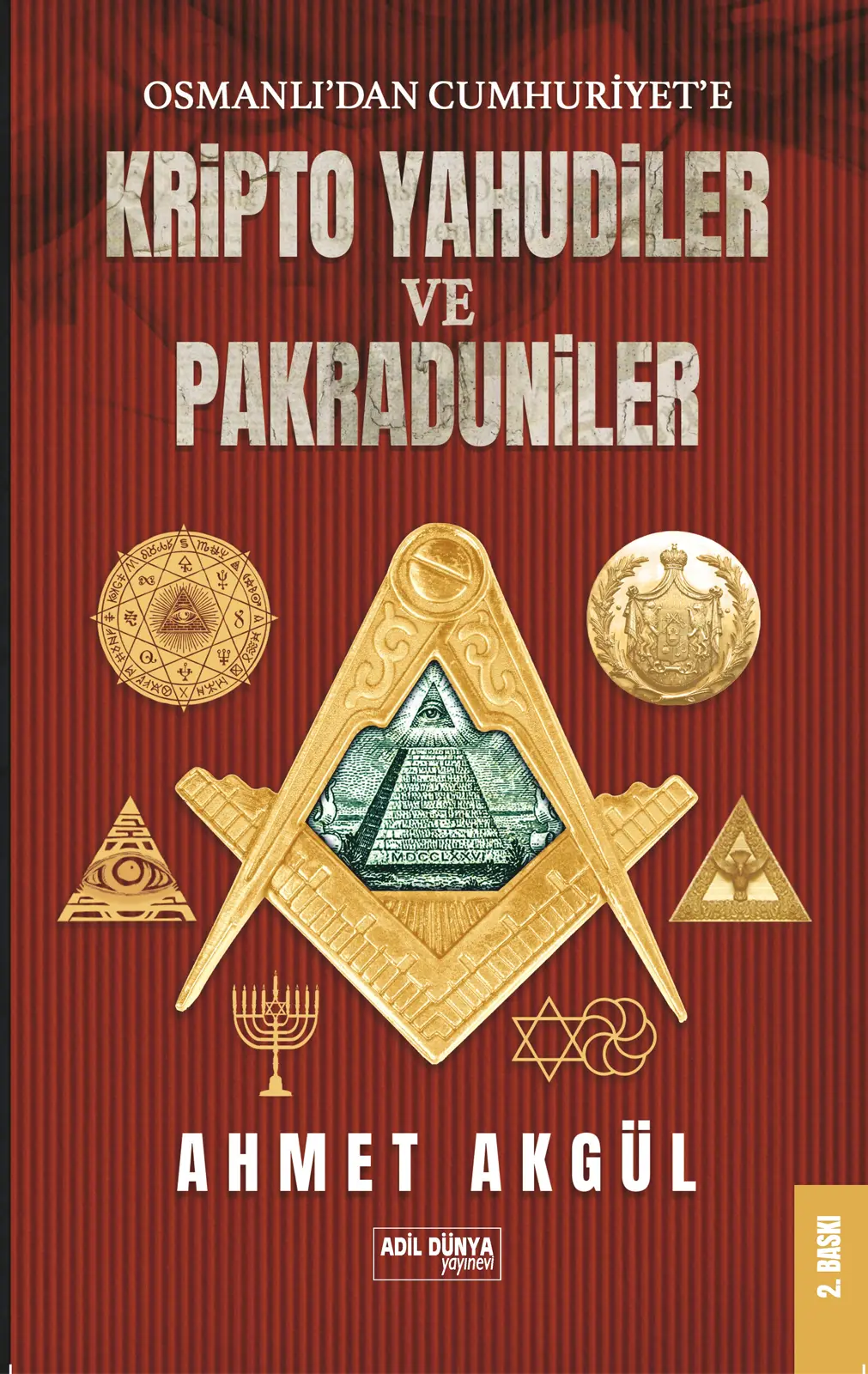
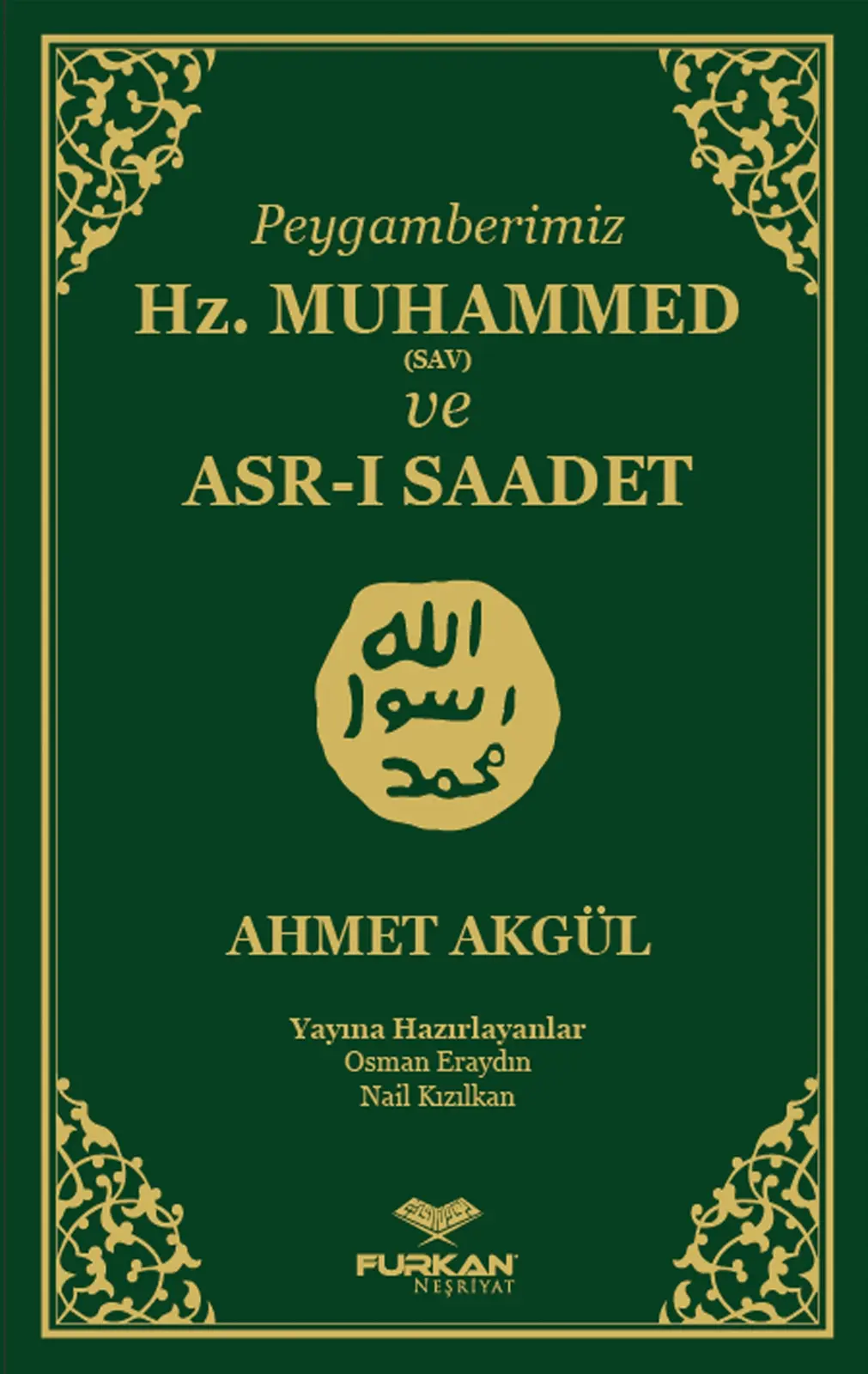


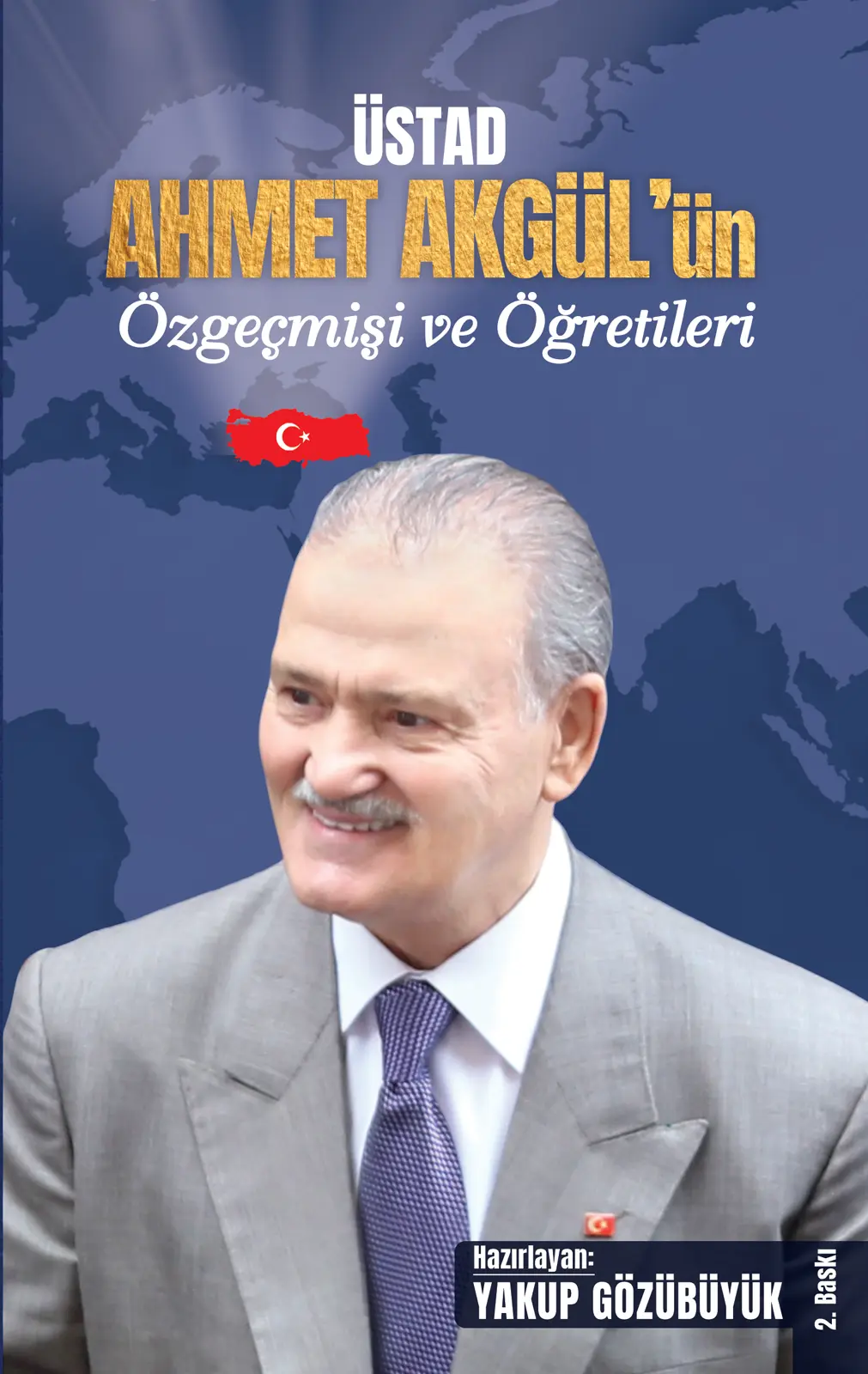
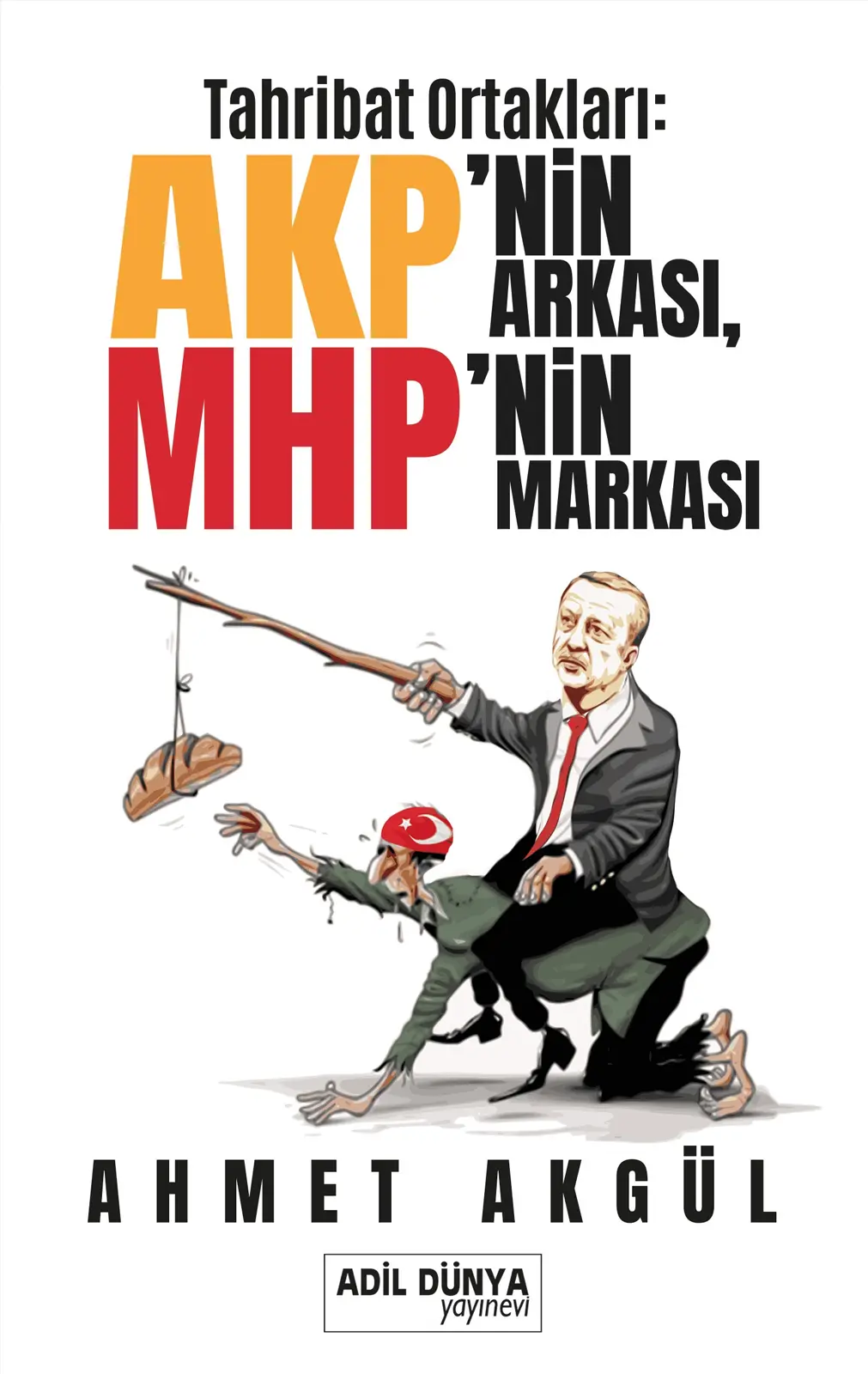


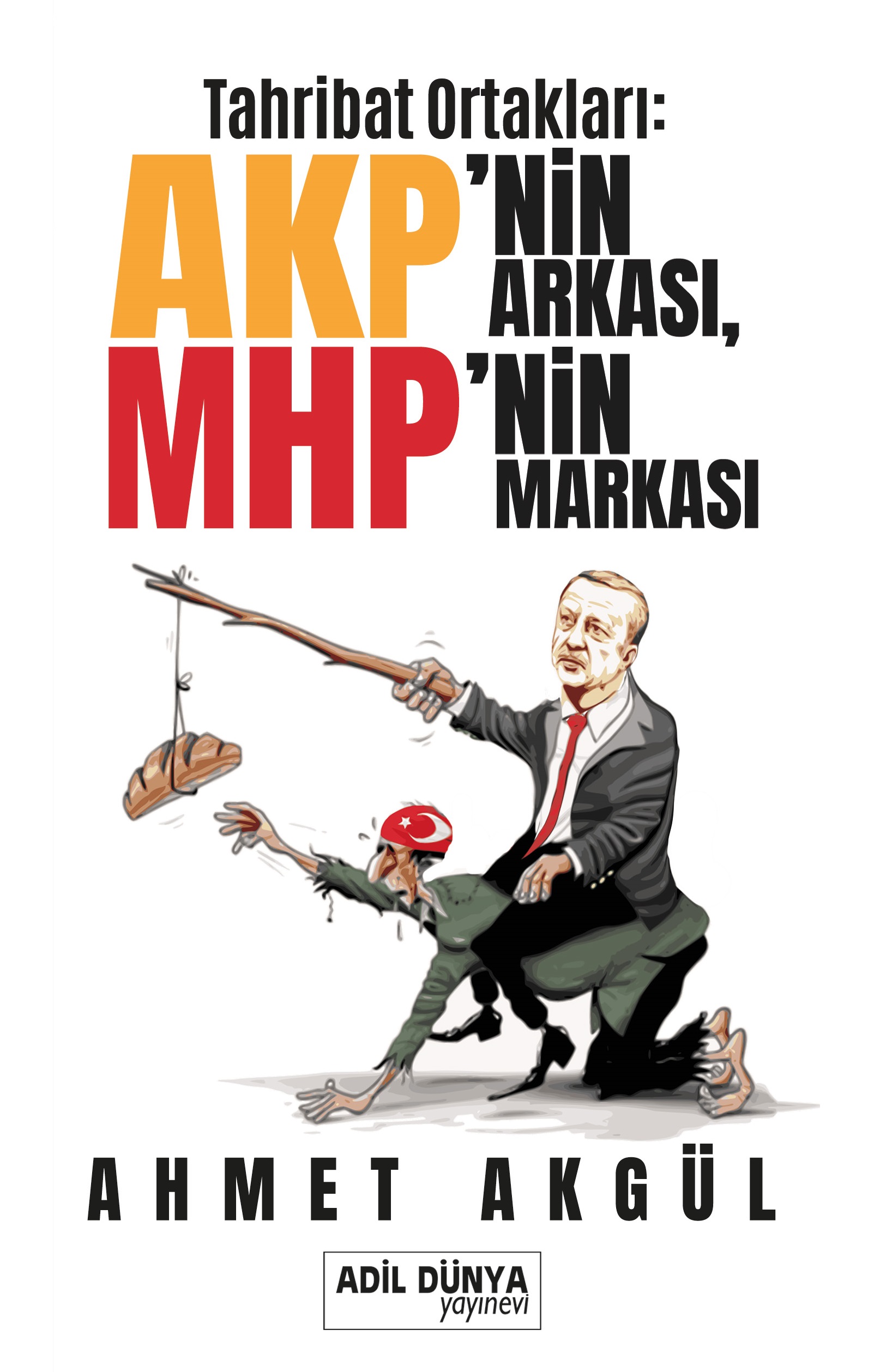
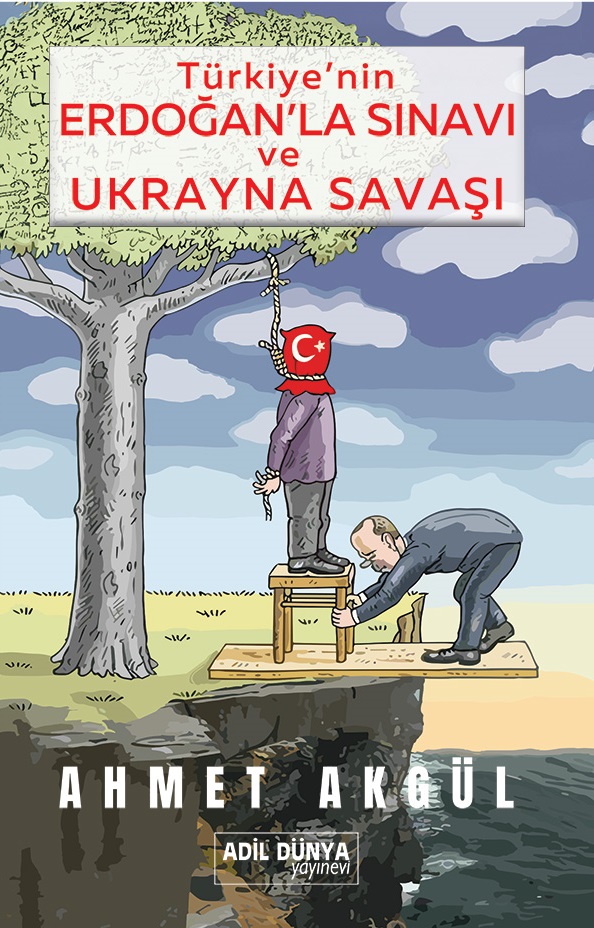

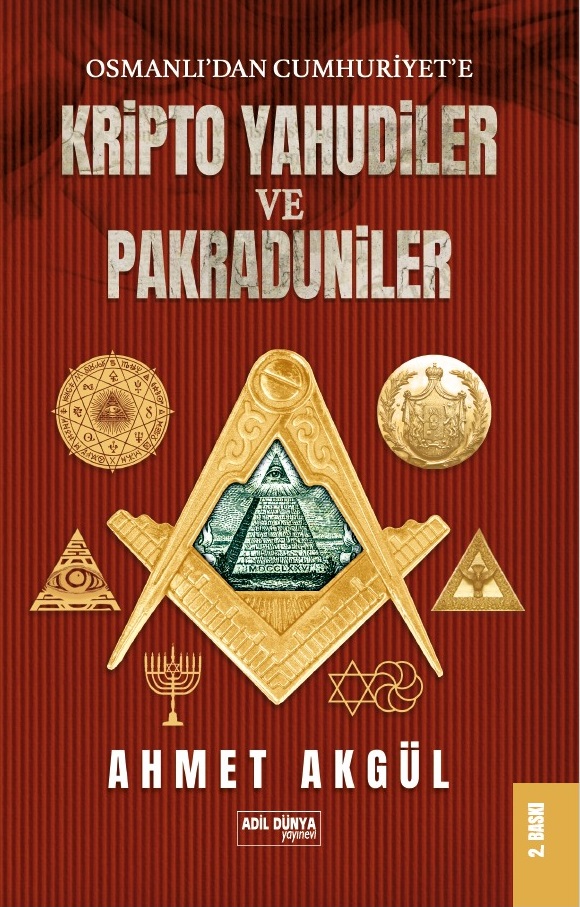
CÜBBELİ AHMET “BEL’AM”CIK’I VE MAHMUT EFENDİ YAKINLARINA UYARI!
FETULLAH GÜLEN DOSYASI
FİLİSTİN’DE; BÜYÜK BAYRAMIN BÜYÜLÜ BAŞLANGICI VE ZEKİ GEÇKİL’İN ŞARLATANLIĞI
Dünyanın Fikri Değişimi Türkiye’den, FİİLİ DEĞİŞİMİ İSE FİLİSTİN’DEN BAŞLAMIŞTIR!
FİLİSTİN’DE; BÜYÜK BAYRAMIN BÜYÜLÜ BAŞLANGICI VE ZEKİ GEÇKİL’İN ŞARLATANLIĞI
OĞUZHAN ASİLTÜRK’ÜN ERBAKAN’A İFTİRALARI
DİKKAT!? Soysuzların Soytarılığı!
DİKKAT!? Soysuzların Soytarılığı!
KUR’AN’A TERCÜMAN, OLDUM KOVULDUM! (ŞİİR)
KUR’AN’A TERCÜMAN, OLDUM KOVULDUM! (ŞİİR)
Milli Çözüm, yaşam sürdüğümüz şu dünya hayatında gerçekleşen hadiseleri doğru anlamanın ve uyanık kalmanın tüyoları…
Özgür Özel, hapishanede bulunan İBB başkanı Ekrem İmamoğlunun yaptığı mitinglerle sesinini duyurmaya çalışıyormuş gibi görünürken…
"Başbakanlar, başbelasıdır bozuk düzende! Gizli gerçek hükümet, mason localarıdır Siyonist merkezler ise akıl hocalarıdır Amerika…
Sırtlanlar sadece, vergi yükler sırtlara BOP IMF görevlisidir, fatura hep yurttaşa Milli Görüş bereketle, zam…
Öyle anlaşılıyor ki hem CHP’de hem AKP’de hem de diğer muhalefet mahfillerinde, hâlâ en korkulan…
Bir toplumda iki sınıf vardır ki onlar bozulursa bütün toplumda ifsat olur bunlar yöneticiler ve…
"CHP’nin marazlı masonik takımı Kılıçdaroğlu’na karşıydı. Çünkü Kılıçdaroğlu, “Kirli, kiralık ve münafık cephenin” değil, “Milli ve duyarlı cephenin” yanındaydı.…
MİLLİ GÖRÜŞ - MİLLİ ÇÖZÜMDEN GAYRİSİ HAİM NAHUM DOKTRİNİN UYGULAYICISIDIRLAR. KİM DAHA İYİ UYGULAYACAKSA SİYONİZM…
Bugünlerde terörist başı bebek katili cani'nin ayağına gitmek için can atanların böylesine bir ihanete nasıl…
Anlaşılan amaç Özel'i bir şekilde aday yaptırıp tekrar kolaylıkla iktidarı sürdürmek. Tabi bu hizmet! falan…